PODCAST: ETFs and Mutual Funds with Todd Rosenbluth
Which is better: ETFs or mutual funds? And how do you decide where to put your investments? CFRA fund expert Todd Rosenbluth has some answers. Also, how to take advantage of your leased car’s true value.

Profit and prosper with the best of Kiplinger's advice on investing, taxes, retirement, personal finance and much more. Delivered daily. Enter your email in the box and click Sign Me Up.
You are now subscribed
Your newsletter sign-up was successful
Want to add more newsletters?

Delivered daily
Kiplinger Today
Profit and prosper with the best of Kiplinger's advice on investing, taxes, retirement, personal finance and much more delivered daily. Smart money moves start here.

Sent five days a week
Kiplinger A Step Ahead
Get practical help to make better financial decisions in your everyday life, from spending to savings on top deals.

Delivered daily
Kiplinger Closing Bell
Get today's biggest financial and investing headlines delivered to your inbox every day the U.S. stock market is open.

Sent twice a week
Kiplinger Adviser Intel
Financial pros across the country share best practices and fresh tactics to preserve and grow your wealth.

Delivered weekly
Kiplinger Tax Tips
Trim your federal and state tax bills with practical tax-planning and tax-cutting strategies.

Sent twice a week
Kiplinger Retirement Tips
Your twice-a-week guide to planning and enjoying a financially secure and richly rewarding retirement

Sent bimonthly.
Kiplinger Adviser Angle
Insights for advisers, wealth managers and other financial professionals.

Sent twice a week
Kiplinger Investing Weekly
Your twice-a-week roundup of promising stocks, funds, companies and industries you should consider, ones you should avoid, and why.

Sent weekly for six weeks
Kiplinger Invest for Retirement
Your step-by-step six-part series on how to invest for retirement, from devising a successful strategy to exactly which investments to choose.
Subscribe FREE wherever you listen:
Apple Podcasts | Google Podcasts | Spotify | Overcast | RSS
Links and resources mentioned in this episode:
- iSeeCars: Best Leased Cars to Buy Back and Sell for Profit
- ETFs vs. Mutual Funds: Why Investors Who Hate Fees Should Love ETFs
- The 21 Best ETFs to Buy for a Prosperous 2021
- PODCAST: Investing in Space, with Andrew Chanin
Transcript:
David Muhlbaum: Mutual funds or exchange traded funds? Which one's better for you as an investor? It's probably no surprise that there's no easy answer, but it's a decision you'll want or need to make. Fund expert Todd Rosenbluth joins us to talk about these two investment vehicles. Also, got a leased car? You might have yourself a little gold mine there. We'll tell you how to cash in.
From just $107.88 $24.99 for Kiplinger Personal Finance
Become a smarter, better informed investor. Subscribe from just $107.88 $24.99, plus get up to 4 Special Issues

Sign up for Kiplinger’s Free Newsletters
Profit and prosper with the best of expert advice on investing, taxes, retirement, personal finance and more - straight to your e-mail.
Profit and prosper with the best of expert advice - straight to your e-mail.
Welcome to Your Money's Worth. I'm Kiplinger senior online editor David Muhlbaum, and I am not joined this week by my regular co-host Sandy Block. At least not for our opening discussion, as she is off on vacation swimming with sharks or something. I asked the editor of Kiplinger's Personal Finance magazine, Mark Solheim, to take her place, in part because I want to talk about cars and car leasing, and that's something that he and I do. Thanks for joining us, Mark.
Mark Solheim: You're welcome, David. It's great to be back, even though we're talking about leasing.
David Muhlbaum: Yes. Leasing. We last had you on when we had Karl Brauer of iSeeCars as a guest to help us sort out the craziness that is today's car market, and that craziness, I guess, we can sum it up in two words, high prices. In fact, it was a study from Karl Brauer's outfit that got me wanting to drag you back here. It was a list basically of, okay, here's the title, “The Best Leased Cars to Buy Back and Sell for Profit.” It seems like some consumers are in a position to take advantage of high car prices, and that's like a man bites dog story because usually, it's not good out there.
Mark Solheim: Yeah, that's true. Yeah, this might be a bit of a niche story. I may be jumping ahead a bit here, but it sounds like it's a story about the residual value. Usually at Kiplinger, our advice has been whether to lease or buy and that's not what we're talking about now. The problem with leasing of course is it's this argot, this jargon that a lot of people don't understand. Capitalized cost for the vehicle price-
David Muhlbaum: Residual value. Terminology.
Mark Solheim: Yeah, residual value. Money factor for the interest rate. But this one sounds like a pretty good story. Let us explore it.
David Muhlbaum: Okay. That lease versus buy thing. I always felt like we talk about almost two camps. It's like a partisan divide. There are the leasers and there are the buyers, and nary the two shall meet, even though there really are valid reasons to consider one or the other. What this is about is kind of telling people who are leasing a car to buy one. The car they have right now, not their next one, the car they have right now, because basically it's worth more than expected. There are several things you need to make this work. You got to be in a lease, you've got to be willing and able to purchase the car that you already have, and you have to be sort of conceptually willing to switch teams, maybe this once. But there could be a lot of money on the line.
Mark Solheim: Okay. How much money? What's a lot? Thousands?
David Muhlbaum: Yeah. How much? Well, it turns on the question of what the car's buyout value was when you leased it. It's sort of the residual value. That price was set three years ago. Before this COVID microchip-driven car shortage that we and everyone has talked so much about. The equation is what is the car worth now versus what did the leasing company three years ago think it would be worth? What's the difference? What's the delta? Okay. From the iSeeCars study, for a Dodge Charger, that is almost $12,000.
Mark Solheim: Holy mackerel.
David Muhlbaum: On average, per the iSeeCars study, the difference across all three-year-old cars is about $7,000.
Mark Solheim: Right. This assumes, of course, that you're in a three-year lease, which is the most typical term and $7,000 on average. Wow. That's a lot, and certainly worth exploring. But how do you get it? You and I both know that leasing is full of — you know, there's a contract and there are fees and lots of things that you really have to read the fine print to know about. So, what's your next step, or your first step?
David Muhlbaum: Yeah. Yeah, no one said it would be easy, but step one is knowledge. You’ve got to know that your leased car is worth more than everyone thought it would be. But you know, the world of car valuation tools, well, they're out there online. You know, KBB, Edmunds, CarGurus, others. Anyway, there's probably a good chance that some sales representative has already been calling or emailing you saying, "Hey, why don't you come down, turn in that lease early? We'll get you something good on the next one." Because the car dealerships are desperate for inventory, and they know that they can resell your car for a big profit.
Mark Solheim: Yeah. That's pretty interesting. I'm not getting any of those emails because our main car is a 2007. They don't want it. But one of the issues with changes in car pricing, even like the ones that we're talking about now, is that most people who decide to sell a car replace it with another one. You got to trade in, trade up, just kind of like buying a house. You still have to drive something, you still have to live somewhere.
David Muhlbaum: Yeah. Yeah. Right. So, the advantage of having a higher price for your old car doesn't make that much difference when you have to pay X more for your new car. But this is kind of a special case. There can often be a difference between residual value and market value at the end of the lease, and sometimes it's the leasing company that gets holding the short end of the stick. But now because of the run-up in car prices, that difference is big, four, five figures big.
Mark Solheim: Okay. Explain. How much? How do you get this seven grand?
David Muhlbaum: Right. Well, yeah, in a paper bag? No. So I talked this over with Karl and I poked around a bit. As things involving leasing tend to be, you know, it's complicated. We've said that already. And it also depends on your own financial situation, including your credit score and how you approach your car, because this gets back to the whole leasing versus buying camp. But let's assume you have one of these leases that's coming due and you plan to replace that car. If you just hand it in and take on a new lease, well, that's not a particularly wise choice because the cost of your new car will likely be higher and you're not capitalizing on the increased value of your old one.
So, conversely, the most straightforward way to get that value would be to buy out your lease. You can buy the car you've been driving at the low value in your lease contract. Then you can do one of two things. You can keep it, assuming you can make the payments on your new loan, because now you're an owner, or you could sell it to any of those zillion places who are begging to sell them your car. Then go out into the leasing market with some portion of that $7,000 in your pocket.
Mark Solheim: Okay. I noticed you did some fine print language there.
David Muhlbaum: (Mocking garbled words)
Mark Solheim: You said some portion of the $7,000. Okay? Explain what's eating away at that number.
David Muhlbaum: Okay. Well, I won't even talk really fast. No. First of all, the $7,000 was just the average from the study, but that's a very good point to make. Basically, fees and costs are a factor that anyone trying this route needs to consider. Any lease is riddled with fees. There's a fee to buy the car, there's a fee not to buy the car. And then sales tax becomes a real consideration, because if you're becoming a car owner, you're now going to pay sales tax on the entire cost of the car, what it's worth now when you register it. Excuse me. Not when it's ... Well, that's an interesting question. Actually, I hadn't thought this through. What if you buy your car below market value and you show up at the DMV and they go, "Yeah, it's worth more than that?" Well, I have to explore that.
Mark Solheim: Yeah. This is not easy. It's complicated. But yeah, I know. That's the sort of arbitrage that the leasing crowd generally isn't into. They like to make it simple. Here's my monthly nut, I get the car for three years, turn it in, get a new one. Hello, goodbye, thank you.
David Muhlbaum: Right. Right. No, I'm not going to argue with you there. I have a cousin-in-law who follows this model. She has what she thinks is a very good relationship with her dealership. She feels well treated as she rotates through leases every three years. Is she overpaying? Maybe. But she's happy with the situation. But still, and this is one of the things I discussed with Karl, even someone who's taking that approach should absolutely do the research to understand what their car is worth, what its buyout value is, and what the difference is. Because once you recognize that, you can use it as a bargaining chip with your good friend at the dealership. If they know that you know that you have options, they might cut you a deal on your next lease, even if you don't have any intention of actually buying it out. Yeah, sure. It's a bluff, but you can bluff very politely.
Mark Solheim: Right, right, right. You've got to ask to get your cash. Okay. I get it.
David Muhlbaum: Yeah. You got to ask. I'll put in a link to the iSeeCars study so you can see what some of the cars with the most paper profit are. Mark, I probably should do a drive time column on this. I'll put in a link to that as well, though it might not get there by the time this airs. But that's the beauty of the internet. I can go back and tweak our files. Thanks for joining us.
Mark Solheim: Oh, you're welcome. It's a pleasure.
David Muhlbaum: Coming up next, our main segment is a conversation with a fund specialist, Todd Rosenbluth, on the differences between mutual funds and exchange traded funds, and which is best for you. And Sandy will be back for that one.
ETFs and Mutual Funds with Todd Rosenbluth
David Muhlbaum: Welcome back to Your Money's Worth. For our main segment today, we're joined by Todd Rosenbluth, the head of ETF and mutual fund research at the research firm CFRA. Now see, I already went and used an acronym, so let me take a quick step back. The ETF in Todd's title stands for exchange traded fund, and I'm going on about this because the fact that there are two main types of funds — we'll probably call them investment products — mutual funds and exchange traded funds. But it's right there in Todd's title. What we want to talk about today is how they're similar but different, and when and why the individual investor might want to choose one instead of the other. And also, a little bit more about the future of each broadly. And so, it should be pretty clear that Todd is the perfect guy for this. He knows both of them backwards and forwards. Exchange traded funds and mutual funds. Country and western. So, thank you for joining us today, Todd.
Todd Rosenbluth: My pleasure. Great introduction of me.
Sandy Block: Yeah. Thanks, Todd. David, when you said country and western, it reminded me of that scene in the Blues Brothers movie where they say, "We play both kinds of music, country and western."
David Muhlbaum: That's exactly where I was pulling from.
Sandy Block: But here on the podcast, we've sometimes had fun in the past with little smackdowns, credit card versus debit card. That was one. There's definitely a temptation to try to do that with exchange traded funds versus mutual funds. But I don't know.
David Muhlbaum: We figured out pretty quickly that wasn’t going to work.
Sandy Block: Too divisive.
David Muhlbaum: Yeah. Frankly, it didn't make sense. There's just too much nuance. Some of that nuance we hope to get into today. Instead of a pitched battle, we're going to have you help us out. One man, two fund types!
A couple more notes as I meander my way to our first question, and one is that we believe based on previous traffic to Your Money's Worth that our audience is fairly knowledgeable about fund investing. The other is that in previous episodes, we have spent some time talking about specific funds, like with the ticker symbol and everything as potential investments. This one, not that one, that sort of thing. I don't think this is going to be that kind of show.It's going to be a bit more general, more about the vehicles themselves, the products, how they work, the fees they charge, that sort of thing.
But if you want ticker-specific, "buy-this-fund" kind of information, I promise you, we have it in spades. If you just search Kiplinger and ETFs or Kiplinger and funds. Lots and lots. Okay. All right. Todd, I just said our listeners are pretty fund savvy, but we've still got to do definitions. Please, I know it's a basic question and a lot of people know the answer or they think they do, but can you outline the main differences between mutual funds and exchange traded funds?
Todd Rosenbluth: Sure. Let's start with a mutual fund. That's probably what people are most familiar with and they might have within their portfolio, and they think that it's the same as everything else. A mutual fund is a pooled investment. You will hold a combination of a range of different stocks or a range of different bonds or a combination of stocks and bonds together within the same portfolio. It's going to be managed by somebody else, so you don't have to do the work yourself in terms of choosing the securities, trading them, moving in and out of the respective aspects of the portfolio. It tends to be diversified. You pay a fee for that management of the product, and then you often may pay a fee in order to trade that product, in order to buy into it or to be able to exit that product.
So, the other investment product that we're talking about is an ETF, an exchange traded fund, and those first two words is what highlights the difference between this ETF and a mutual fund. It trades on an exchange. Just like you would buy a stock, you put in an order to buy this and you're often buying it from another seller, not directly from a fund company, and it's traded. You can only buy this during market hours. You pay a trading cost for that, whether it's even — Often it's commission free, but there is a cost in terms of what you pay, and you pay a price that is different than the net asset value of the portfolio.
A little bit more complicated in how it's set up. But a couple of the other key differences between an ETF and a mutual fund. Most ETFs charge a lower fee than a mutual fund does. Most ETFs track an index as opposed to having a portfolio manager or manager team that are selecting individual stocks or bonds. The exchange traded fund is tracking an index like the S&P 500, the Russell 1000, the Bloomberg Aggregate Index, but they work just the same. You get a similar level of diversification. You just — It's set up differently. Those are some of the main differences between an ETF and a mutual fund. An ETF tends to be cheap, it tends to be managed by an index provider and you buy and sell trading with somebody else as opposed to putting new money into a fund.
David Muhlbaum: Thank you. I just want to note for anyone listening along, Todd's in New York City. You can probably tell. That's life. The ambulances will go by. But thank you for that. It's very broad. I hope to find a resource because you shared with us a few slides ahead of time that delineated very well some of these differences. They're extensive and significant, and I'm hoping we're going to find a resource online that we can pop in the show notes that will break those down so people who want to come back to it can come back to it. But looking at some of the points that you brought — one of the main things you mentioned is that many ETFs are not actively managed, are index funds that follow an index.
And so, well, you know, so are some mutual funds. I kind of want to jump to the individual investor who is going to be looking at, who might have that very straightforward choice of investing in, let's say, the good old S&P 500, right? Well, you know, even looking, and we'll narrow it down further. Let's just look at Vanguard. Someone who is going to, wants to invest in an index fund tracking S&P 500, at Vanguard, they could pick an ETF of it, VOO, or the mutual fund, VFINX. What and why would guide their decision? I mean, obviously you told us a lot about the fee structure and that sort of thing. But for the individual investor, which one do they pick?
Todd Rosenbluth: Well, the fees are going to be quite similar. There are either three basis points or four basis points or five basis points depending upon the different version of the Vanguard 500 Index Fund that you have. And so you're not really going to make much of a difference in terms of performance in terms of those fees. So it matters perhaps what type of an investor you are. So in an ETF, the fact that you can make that trade, you have liquidity throughout the day, you can choose to rebalance it and do so in a more seamless manner, that may be an advantage to you as an investor. Whereas with a mutual fund, it's easier to do something like dollar-cost averaging and build into a position and schedule those changes.
You might also find that you might not be making this choice yourself. It might be within a 401(k) plan or a retirement program that you have. And so, in that case, mutual funds are almost always the choice that you have. ETFs are extremely rare to find within a 401(k) plan, just because some of the advantages that come with an ETF don't make sense. You're not making that intraday trading and the fees tend to be lower because the institutional share classes are set up. So, if you're making the choice yourself, there's probably no good or bad choice between the Vanguard 500 Index Mutual Fund and the Vanguard 500 ETF. They're owning the exact same securities, they're charging almost the exact same cost.
Sandy Block: I'm going to pick up on that, Todd, because David and I were discussing the whole 401(k) issue, and the fact that if you have most of your money in a 401(k) plan or all of your money in a 401(k) plan, pretty much I don't think you can invest in ETFs unless you take advantage of a brokerage window, which is something I'm writing about right now. But very few investors do. Is there any chance that that's changing? The reason I ask that question is we have a lot of stories in our magazine and our website about people looking to ETFs for very specialized indexes. They are attractive to people, and I just wonder, is this going to change or is there just something institutional in 401(k) plans that make ETFs not really sustainable?
Todd Rosenbluth: It's more, I think, inertia. The providers for 401(k) plans just are not encouraged to make the change. They haven't done the back office to make this possible. It will happen, but I think I've been saying it for the last 10 years that it will happen, and I probably may be still saying it for the next 10 years that it will happen at some point. But you make an excellent comment that with index-based ETFs, there's just many more choices. So an investor that likes a lower cost structure can get many more granular and either more targeted exposure towards either lower risk stocks, dividend paying stocks, more thematic long-term approach towards some of the themes like cybersecurity or clean energy that are increasingly popular.
There aren't mutual fund choices that exist that track these indices the same way that they do in ETF. So I hope that we're going to see change, but I've been hoping that for a while. The ETF structure makes more sense for our long term investor because the fees tend to be cheaper. So if we can get index-based mutual funds, then perhaps, but the index-based mutual fund world tends to be pretty broad S&P 500-like in nature.
David Muhlbaum: Yeah. You mentioned the specificity of funds. We, in fact, had pretty much an entire podcast about just a handful of funds, technically one, about space investing. That was a classic case of where you had this extreme focus on one section of the industry, and they structured as an ETF. To jump back, because I cued on the word, you talked about inertia, that there's inertia in this industry. To some extent it, it's also inertia and a small “c” conservatism. Things just don't change that quickly. I was hoping you could give us a bit of just the general history of mutual funds, which are something that, you know, in our lifetimes, just have always been around, and then ETFs, which are the relative newcomer. Can you just give us a quick history of how this whole idea of pooling things even came about and where it stands?
Todd Rosenbluth: Sure. So the mutual fund is almost 100 years old, at least based on the history that I have. In 1924, I believe, it was the Massachusetts Investment Trust, which is I think the longest lasting fund. It's still around for investors —
David Muhlbaum: I think Vanguard Wellington also makes a claim, I saw.
Todd Rosenbluth: Yeah. Perhaps that's been...
David Muhlbaum: Right. They can fight it out.
Todd Rosenbluth: Yeah. Well, we should celebrate the history of the 100-year mark for the mutual fund, nonetheless. And that's the way it was, you know, for decades. And in fact, mutual funds were actively managed up until Vanguard launched the first of the Vanguard, what it became, the Vanguard 500 Index Mutual Fund, I believe, in the '70s. Again, Jack Bogle, who was, you mentioned, was at Wellington, set up Vanguard and helped to pioneer index-based investing in the mutual fund wrapper. We have to fast forward to 1993 when the first ETF, which also was tracking the S&P 500, came to market. That was from State Street. The ticker is SPY. So that is now 28 years old.
And we've seen just an evolution in terms of the number of products that have come out. Both we've seen now more index-based mutual funds. We're actually now seeing actively managed ETFs. The ETF industry in the United States is almost $7 trillion dollars, $6.7 trillion in total assets currently as it stands today, but is still far smaller than the mutual fund industry. Most folks are still choosing or still hold mutual funds. And perhaps, you know, you've pinged off of my comment of inertia. Some of that has to do with perhaps inertia. If you held a mutual fund for decades, there's no reason to make the change just because there's a newfangled ETF that's come around in the last two decades. Good products are still good products.
David Muhlbaum: Right, and there could be significant tax consequences depending on how they're holding onto it. Why would you change just for the type? But one scenario where I was thinking,where someone who was not used to ETFs could all of a sudden essentially have the opportunity to invest in them, and perhaps, if I've got this right, do it without those tax consequences, is on a 401(k) to IRA rollover. I'm waiting for one of you to jump and go, "It doesn't work that way." But-
Sandy Block: No, it does. I think it does because in the story that I'm just working on, pretty much, and Todd can back me up on this, I think once you move money into an IRA, you can invest in just about anything, but like collectibles. I assume that means the ETF world is open to you then, right? Is that right, Todd?
Todd Rosenbluth: I believe that's the case. So, you can buy an ETF in any of your IRA programs. I'm less versed in the conversion into an IRA, but yes, the advantages you'd have. Now, some of the advantages of using an ETF in the IRA get muted. The tax, we didn't touch on as much. But ETFs tend to be more tax efficient because when I want to sell shares of my ETF, I'm selling it to one of you as opposed to dealing with the fund company. So, Sandy, if I sell my shares of SPY and you buy it, it only affects the two of us. It doesn't affect any of the other investors. Whereas in the mutual fund, if I redeem my shares, it does cause or could cause a tax implication for the broader shareholder base. So, if you're in a tax protected account, there's less of the benefits, but still benefits.
David Muhlbaum: The impact of that trading shows up in the end of the year when you get your capital gain distributions in your mutual fund, which are either taxable or not, but they’ve got to be thought about. But so, in my little theoretical, someone who had a 401(k) that perhaps held VFINX, the Vanguard S&P 500, they could — once they've rolled over their 401(k) assets — they could sell VFINX and buy the ETF, VOO. It's theoretically possible. Is there an argument for it?
Todd Rosenbluth: Well, I think the reason to do so is if you're using other ETFs. So, it's just easier to have a portfolio if you're gravitating towards ETFs in general and you want to build your portfolio using the S&P 500 as your core. But you want to increase exposure to a certain sector or focus more on a lower volatility product. Vanguard offers some of those in a mutual fund structure, but many of them, they don't. They offer now ETFs that they don't have a mutual fund for, assuming you want to stick with just Vanguard as opposed to diversifying your asset managers. So, it helps you because ETFs in a pool of investments is easier to track than some ETFs and some mutual funds. But I don't know that you'd necessarily want to swap the exact same product, to just go from mutual fund to ETF.
Sandy Block: No. I mean, it sounds like picking up on what we discussed earlier, Todd, if you did a rollover into an IRA, the ETF world offers you an opportunity to either be a more active or more specialized investor than maybe you could have been in your 401(k).
David Muhlbaum: You mentioned the relative amount of money that is in mutual funds versus ETFs, and that mutual funds are still larger. But my understanding is there's a directional flow happening in the market. Essentially money is leaving mutual funds and heading towards ETFs in a sort of broad approach. So, on one hand, we have this question, what should the individual investor do? What do I do with this? But we can also measure, what are all the investors doing, right? And they are increasingly picking ETFs.
Todd Rosenbluth: That's correct. So, in the United States, we saw record inflows into ETFs in 2020, $504 billion — we've blown that away. As we're recording this today, we are about $600 billion of net inflows through the end of August. Already passing the record. Most of the money has gone into equity ETFs, particularly index-based ETFs. Investors are still comfortable and using actively managed fixed income mutual funds. We've seen money continue to go into those products. Even though we had record inflows into fixed-income ETFs in 2020 and we might actually break that record again in 2021.
So with fixed income, we're seeing investors use both those products. Increasingly, investors are choosing an equity ETF over an equity mutual fund, but that doesn't mean people should do so; they should stick with the products that make sense. If I can add two quick additional bigger picture things that's happening. One is that we've started to see actively managed mutual funds actually convert into ETFs this year. So we’ve seen, we saw a relatively small firm, Guinness Atkinson, do that. We saw a much larger firm, Dimensional Fund, do so. With about $30 billion, they converted existing mutual funds that were low cost and lightly active management. And now J.P Morgan has announced they plan to do so in early 2022. We're likely to see more of this, and that's just money directly moving from a mutual fund into the ETF structure. Then the second thing is that we're seeing more firms that previously only offered actively managed mutual funds offer actively managed ETFs.
So, Fidelity has offered ETF versions of some existing mutual funds. T. Rowe Price has done so. Where now the big elephant in the mutual space, Capital Group, that runs American Funds, plans to launch ETF strategies using the same management team, but different names and there'll be nuanced differences between the products. Now investors are going to have a true choice between whether or not they want an ETF or a mutual fund, as opposed to only sticking with active mutual funds or index-based ETFs, and then we'll see. You'll have that battle you wanted to have between the debit card and the credit card. Investors are going to vote with their wallets.
Sandy Block: So, Todd, let me just drill down on that a little bit, because you said you should choose the one that's right for you. Any thoughts on how to make that choice — given, you know, all things considered, you're not just talking about a 401(k) plan where you really don't have — If you have the option, what you should be thinking about, mutual funds versus ETFs?
Todd Rosenbluth: It probably matters a few things, your time horizons for investing and your patience in doing so, and then whether or not there's choices available for you to achieve the goals that you want. I'll try to tick those off if we can. If you're a buy-and-hold investor that doesn't need the advantages of liquidity to be able to trade and to rebalance it yourself, but you want somebody else to do that for you, you can certainly build a couple of, have a couple of mutual funds or even just have, make it simple and have an asset allocation or target date mutual fund to achieve those goals for you. You pay perhaps a little bit more than you would in an ETF, but someone's doing that work for you.
If you want to keep it simple and you want index management, there's simple index-based products — Vanguard and Schwab among them — that offer those products. Whereas if you want to have a more tailored portfolio, you want to be able to focus and , overweight certain sectors or overweight certain styles, you have more confidence in your ability or your advisor that you may be working with’s ability to allocate towards those respective areas. Or you want to invest in index-based products that have longer-term themes. You touched on space investing. That's one of them. There's a whole range of those products that don't exist in the mutual fund world. So, we at CFRA have clients that are only using mutual funds. We have some that are using only ETFs. We have some folks that have had mutual funds that have continued to build ETFs into their portfolio. It really comes down to a personal choice and we want to provide the research tools. I know you at Kiplinger want to write articles that help people to sort through those various choices and make sense for them.
David Muhlbaum: Coming back to something you talked about earlier, I was aware of the concept, you know, of fund companies offering essentially a ETF versus mutual fund version of the same fund. But you talked about these direct conversions where a company that was offering a mutual fund changes it to an ETF. And I just want to try to figure out what this means to the individual investor who already owns shares of, well, we'll call it the predecessor mutual fund. Do they get liquidated and converted to ETF shares?
Todd Rosenbluth: It was a non-taxable event that took place. One day they owned a mutual fund, the next day it became an ETF. They had to do nothing. It just converted it for them. Then they had the liquidity if they were unhappy. If despite hearing all of this, they don't want to own an ETF, they don't believe in it or it's too complicated, they could choose to sell. That would be a taxable event. But this was done behind the scenes and seamlessly.
But we're going to see some more of this, in my opinion, but I don't think we're going to see a lot more of it. And partially why is that with mutual funds there’s often multiple share classes. There's an advisor share class and there's a retail share class and an institutional share class, and converting all of those together, pulling that back together and then making that conversion and getting all of those shareholders to be comfortable with that and those changes is probably harder to do. Which, in part, why we're seeing Fidelity launch Fidelity Magellan ETF. They continued to have Fidelity Magellan, the mutual fund, because they wanted to give investors the choice instead of making the choice for them.
David Muhlbaum: Yes, that was the one that was rolling around the back of my head, the Magellan. Well, Todd, we're planning another podcast soon about target date funds, which are another slice of the market altogether, and I'm generalizing here, kind of the opposite of what the active trader using ETFs is likely to favor. But I know there are people out there who own both. They're deep into trading, but they might also have their kid's college money in a target date fund. Anyway, the point here is not to go too deep into target date funds, because Lord knows we're going to do that someday. But to ask you,Todd, how the mutual fund versus ETF question plays into those. Since a target date fund is a fund of funds, their managers get to pick which kind, which are they picking?
Todd Rosenbluth: So, they're picking what their fund company offers. So, there are some ETFs that exist within these target date mutual funds. I believe, for example, that BlackRock, which offers target date funds or fund of funds, they may not be target date funds, but certainly fund of funds, they are using ETFs alongside mutual funds to round it out. It makes sense when it's their own products, and so target date funds tend to use the home cooking that's provided. But then also you can just bring the cost down by often using the index-based ETF instead of in a large cap core. So they might own — I don't know if they do — for example, they might own the S&P 500 through IVV, which is iShares S&P 500 ETF and then have some active management in other asset classes to build around it. And so, they're doing so. But many of the firms either don't have an ETF structure, or if they do have an ETF structure, they're relatively new, relatively or they're less liquid right now. But it perhaps is something that we could see: T. Rowe Price or Fidelity beginning to use their own ETFs within it and improve the liquidity all around.
David Muhlbaum: To go back to my, to go back to our 401(k) investor who, at least for the most part, doesn't have access to ETFs. Sandy, we'll get to the brokerage window one of these days. But doesn't have access to ETFs. But if they owned a target date fund in their 401(k), they could indirectly own ETFs. They may not even know it, but at least it's theoretically possible.
Todd Rosenbluth: It certainly is possible that they have it, and I'll hit on the key point, to me, of what you said, is that they may not know it. And that's part of what we're doing here, what you're doing of trying to educate investors. If you own a target date fund, it's probably worth knowing what's inside it, understanding the allocation, the same way that you would if you were building a portfolio yourself using individual stocks just because it's easy to own a target date mutual fund. Doesn't mean you should stop the homework there. You can understand it and make sure it's the right one for you. But there are no target date ETFs that exist. There are some asset allocation, so they own other ETFs within it. BlackRock, among others, run some of these products where they'll do the work for you. It will rebalance so that you'll get back to having a 60/40 split or a 70/30 split between equity and fixed income over time so that you don't have to do that. But that's the disadvantage or one of the disadvantages to using an ETF is you have to do the work to rebalance it yourself.
Sandy Block: So, Todd, you mentioned earlier on that, one of the advantages of ETFs is that they are cheaper. Now we have written and I've followed for years about how mutual fund expenses have gone down a lot, especially if you stick with index funds. But how much less expensive are ETFs and how relevant is that? Are we putting too much on fees here?
Todd Rosenbluth: So, let me cover that. I'll do the second half of that first. We're spending too much time collectively focusing on fees. Now, you want to pay as little as possible, but you don't want to just buy the cheapest product that's around because often the cheapest product, it offers you much different exposure and what's inside-
Sandy Block: You get what you pay for sometimes.
Todd Rosenbluth: You get what you pay for and what's inside the portfolio, the stocks or the bonds are what is going to drive the fund higher relative to its peers and keeping up with the broader market much more than the fee savings you might get. You certainly shouldn't be selling out of something just because something cheaper came around. You wouldn't sell your house just because something else came on the market down the block for a little bit less money. It's probably a different house.
Now, fees are important though. ETFs tend to be much cheaper. Because they’re, often because they're index-based and in part because of the competition that's happening within this space. There's dozens of index-based ETFs covering equity and fixed income investment styles that charge less than 10 basis points. There's actually two different fund families that offer ETFs where there is no fee at all. You pay a 0% fee and that's not for a limited time offer. They're charging you nothing for the product, and what they're hoping is that you'll buy other things within the fund family and build products around that. That doesn't mean you should buy the cheapest product around. The Vanguard 500 index-based ETF charges three basis points, and it's got hundreds of billions of dollars in assets. People are not moving out of it.
With mutual funds, the fee tends to be closer to 100 basis points if it's actively managed, and then there's gray areas in the middle. So your actively managed ETF will probably charge 65 basis points, maybe even lower, 50 basis points. Your index-based mutual fund will be closer to the fee of the ETF. There's a long answer to this. There's a wide range of different choices. The fees keep coming down because money is chasing and going after the lower cost products. But investors shouldn't just buy the cheapest product around it. The free products are good, but they may not be better at all than what you have today, and you would cause a taxable event by selling out of Vanguard 500 to buy the Bank of New York Mellon large cap ETF, BKLC to save three basis points. You'd actually lose money as a result of that, in all likelihood.
David Muhlbaum: Yeah. That inertia we spoke of, it's not. Inertia sometimes, I think, has a negative connotation like, "Oh, I'll get around to that." But actually it also reflects wise choices about the entire tax strategy of how you manage your investments and not just jumping for what looks like a marginal savings and forgetting the big picture. That's an important nuance you brought up, Todd. I think it's something we can use thinking about from time to time, because a lot of us, including here at Kiplinger, can get pretty obsessed about fees. But, you know, as we've said, you’ve got to think about what you're paying for here.
Todd Rosenbluth: Indeed. It should be one of the metrics that you focus on when choosing the fund in addition to performance, in addition to the exposure that you're getting, in addition if it is an actively managed fund is to how long that manager has been in place. Fees matter, but they're not the only thing that matters.
David Muhlbaum: Excellent. Just to come back to the idea of the smackdown, I am just curious, do you get essentially the cocktail party question like, well, which is better?
Todd Rosenbluth: I get asked which is better, and then I get asked for, okay, well, then if you choose that-
Sandy Block: Which one?
Todd Rosenbluth: ... which one and which one would you buy and what the reasons are.
Sandy Block: That's the cab driver question.
David Muhlbaum: They want specifics. They want specifics.
Sandy Block: Yeah. That's the cab driver, the Uber driver. Yes, right?
Todd Rosenbluth: They want specifics. But more, I mean, I think it's in part, people are increasingly gravitating towards ETFs, so they might own a mutual fund and have questions about an ETF and what makes it different than what they know, because mutual funds are just what most people have or people my generation have grown up with. The younger generation and my kids won't know, won't have thought much about a mutual fund because ETFs are more of what they know. I think that we're seeing that in survey studies as well in terms of ETFs are increasingly being used by a younger generation of investors. But, you know, everybody I think is getting more comfortable with it. The greater comfort, the better, because ETFs benefit from the liquidity and the buying and selling of other people.
You want to know that somebody's going to buy what you're looking to sell and that there's inventory and vice versa on it. So, I think we're at an inflection point where we're going to see more and more focus on ETFs and less perhaps on mutual funds. But anyone that owns a mutual fund, again, I'll reiterate, should not make a change just because there's something relatively new that's come around.
David Muhlbaum: That is a great summation of the dynamics of the market today. Both the broad, what's happening on the big level, and what the individual faces in choosing, well, A or B, B or A — "I've had A, should I get B?" I hope that in what we've covered today, we've given people some of the tools to guide those decisions. Thank you very much for joining us today, Todd. Really appreciate it.
Todd Rosenbluth: No, it's been my pleasure. It's a great conversation and happy to work with you guys.
David Muhlbaum: That will just about do it for this episode of Your Money's Worth. If you like what you heard, please sign up for more at Apple Podcasts or wherever you get your content. When you do, please give us a rating and a review. If you've already subscribed, thanks. Please go back and add a rating or review if you haven't already. To see the links we've mentioned in our show, along with other great Kiplinger content on the topics we've discussed, go to kiplinger.com/podcast. The episodes, transcripts and links are all in there by date. If you're still here because you want to give us a piece of your mind, you can stay connected with us on Twitter, Facebook, Instagram, or by emailing us directly at podcast@kiplinger.com. Thanks for listening.
Profit and prosper with the best of Kiplinger's advice on investing, taxes, retirement, personal finance and much more. Delivered daily. Enter your email in the box and click Sign Me Up.

In his former role as Senior Online Editor, David edited and wrote a wide range of content for Kiplinger.com. With more than 20 years of experience with Kiplinger, David worked on numerous Kiplinger publications, including The Kiplinger Letter and Kiplinger’s Personal Finance magazine. He co-hosted Your Money's Worth, Kiplinger's podcast and helped develop the Economic Forecasts feature.
-
 The New Reality for Entertainment
The New Reality for EntertainmentThe Kiplinger Letter The entertainment industry is shifting as movie and TV companies face fierce competition, fight for attention and cope with artificial intelligence.
-
 Stocks Sink With Alphabet, Bitcoin: Stock Market Today
Stocks Sink With Alphabet, Bitcoin: Stock Market TodayA dismal round of jobs data did little to lift sentiment on Thursday.
-
 Betting on Super Bowl 2026? New IRS Tax Changes Could Cost You
Betting on Super Bowl 2026? New IRS Tax Changes Could Cost YouTaxable Income When Super Bowl LX hype fades, some fans may be surprised to learn that sports betting tax rules have shifted.
-
 PODCAST: Is a Recession Coming?
PODCAST: Is a Recession Coming?Smart Buying With a lot of recession talk out there, we might just talk ourselves into one. We take that risk with Jim Patterson of The Kiplinger Letter. Also, dollar stores: deal or no deal?
-
 PODCAST: This Couple Tackles Love and Money as a Team
PODCAST: This Couple Tackles Love and Money as a TeamGetting Married Fyooz Financial, the husband and wife team of Dan and Natalie Slagle, have carved out a niche advising other couples with the money questions that come with pairing up. Also, where is this troubled stock market headed?
-
 PODCAST: Decoding ESG Investing with Ellen Kennedy
PODCAST: Decoding ESG Investing with Ellen KennedyBecoming an Investor Environmental, social and governance investing is simpler than it sounds, and has a profitable track record to boot.
-
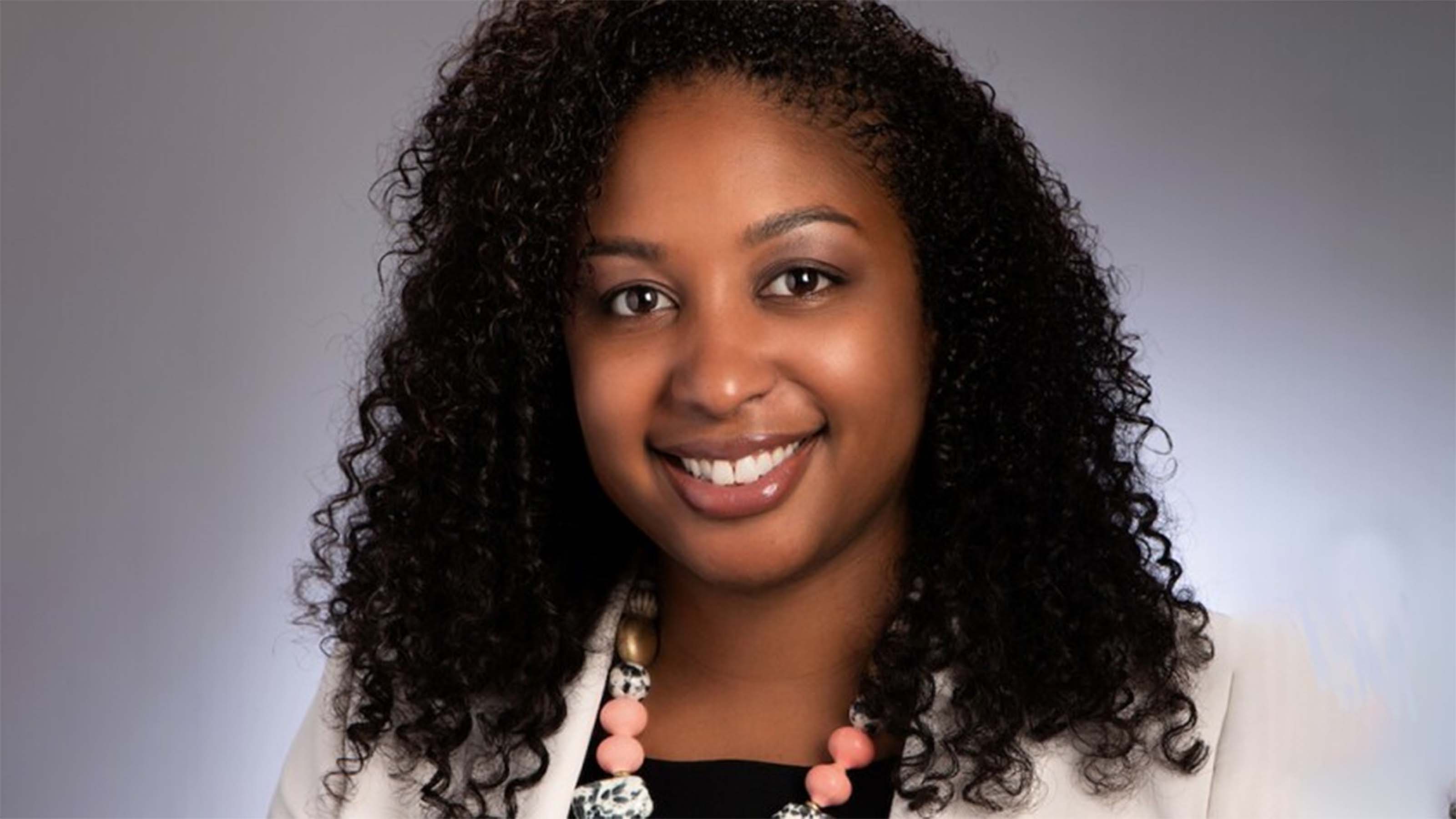 PODCAST: The Future of Certified Financial Planners with Kamila Elliott
PODCAST: The Future of Certified Financial Planners with Kamila ElliottBecoming an Investor CFPs will tell you (and we’d agree) that not all financial advice is the same. We talk with the chair of the CFP Board about what she’s doing to preserve her organization’s brand and extend its reach. Also, the right way to file your tax returns for free.
-
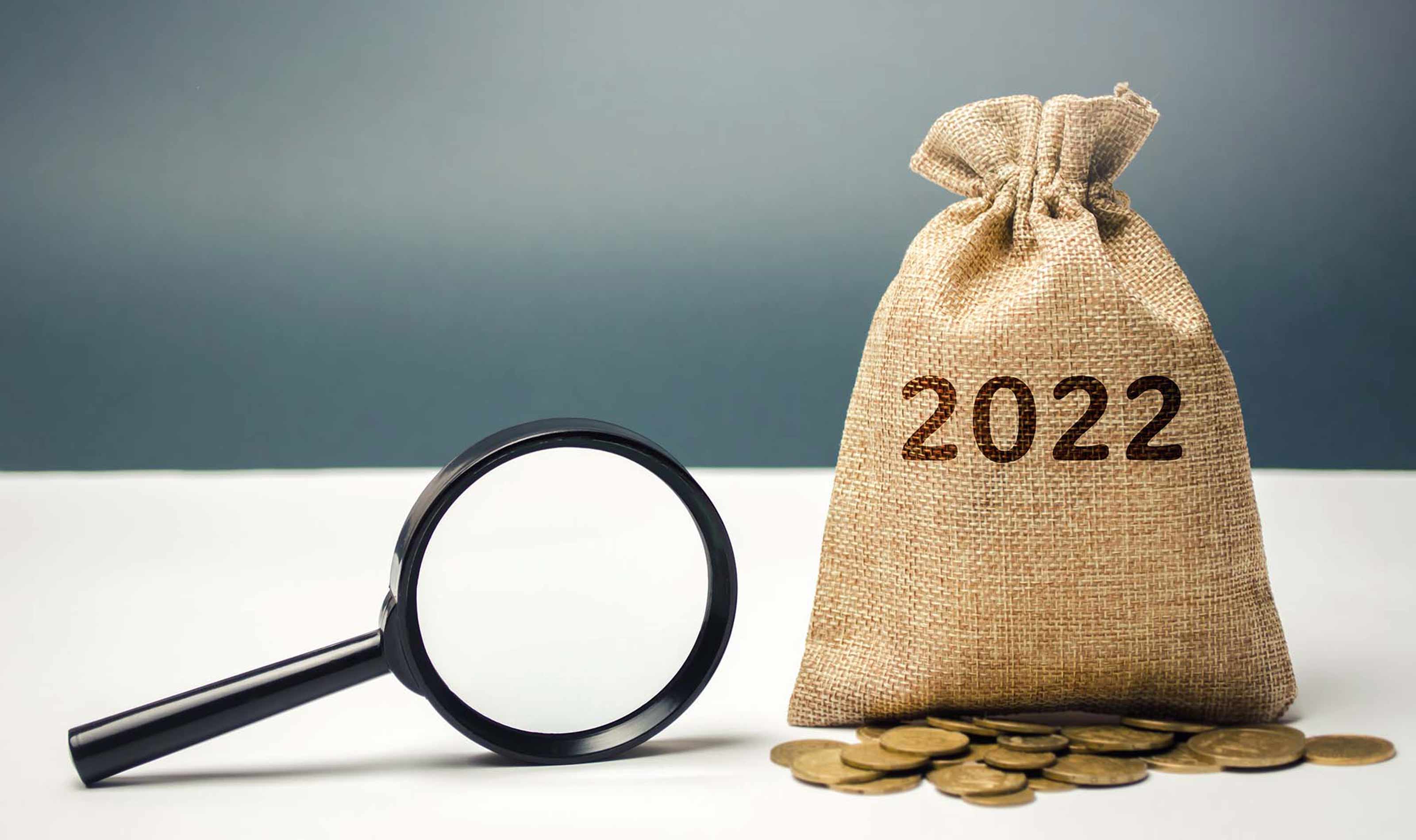 PODCAST: The Kiplinger Letter’s 2022 Forecasts
PODCAST: The Kiplinger Letter’s 2022 ForecastsEconomic Forecasts What to expect from the U.S. economy and an election-year Congress, as well as the outlook for cryptocurrency regulations, TikTok and more. Plus, we give the Elizabeth Holmes verdict a think.
-
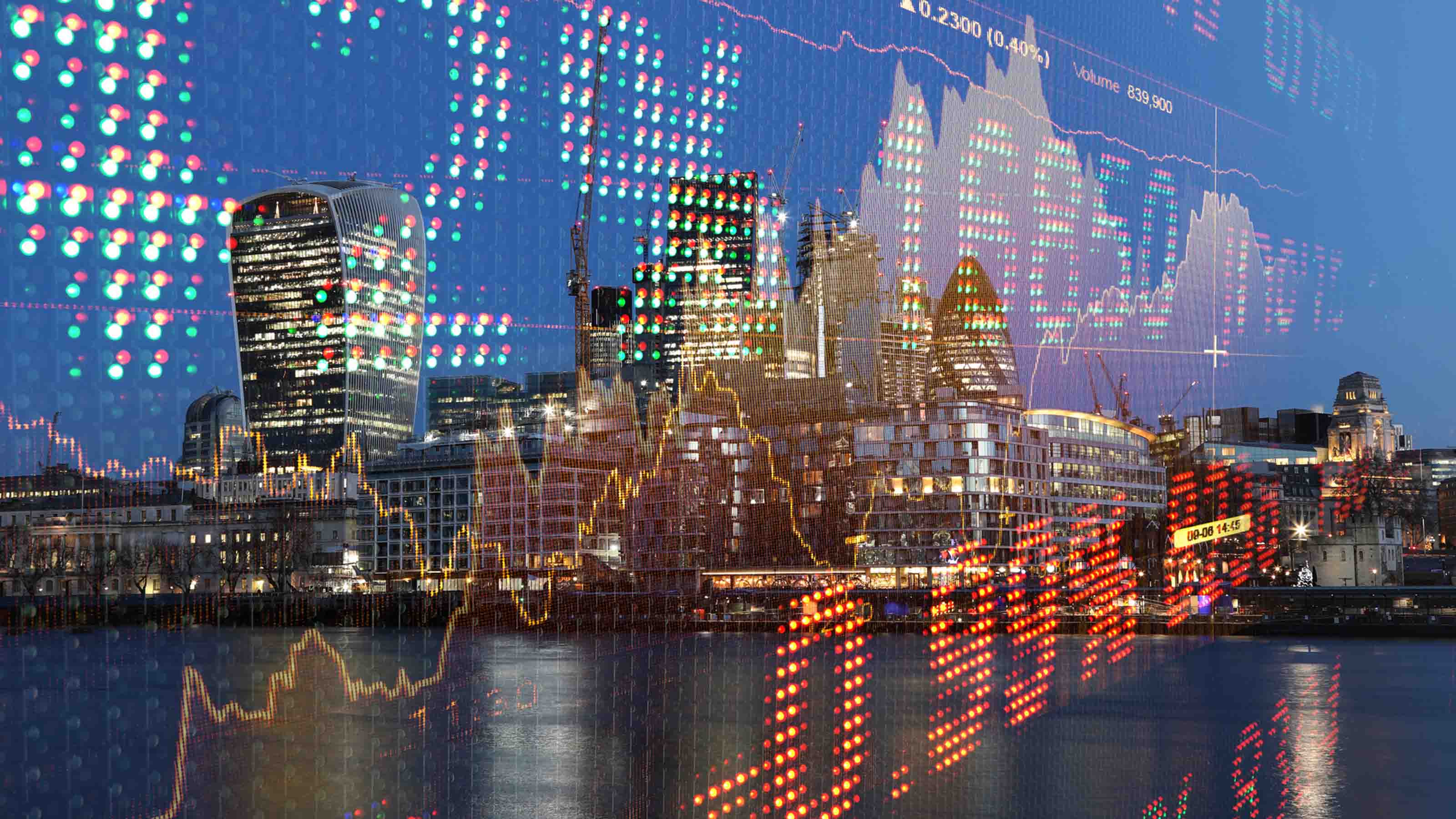 PODCAST: The 2022 Stock-Market Outlook with Anne Smith and James K. Glassman
PODCAST: The 2022 Stock-Market Outlook with Anne Smith and James K. GlassmanMarkets Sure, measuring stock markets by calendar years is a bit artificial, but it’s still a good way to give your portfolio a checkup. We forecast what stocks and sectors will fare well in 2022. Also, how the 401(k) got its start.
-
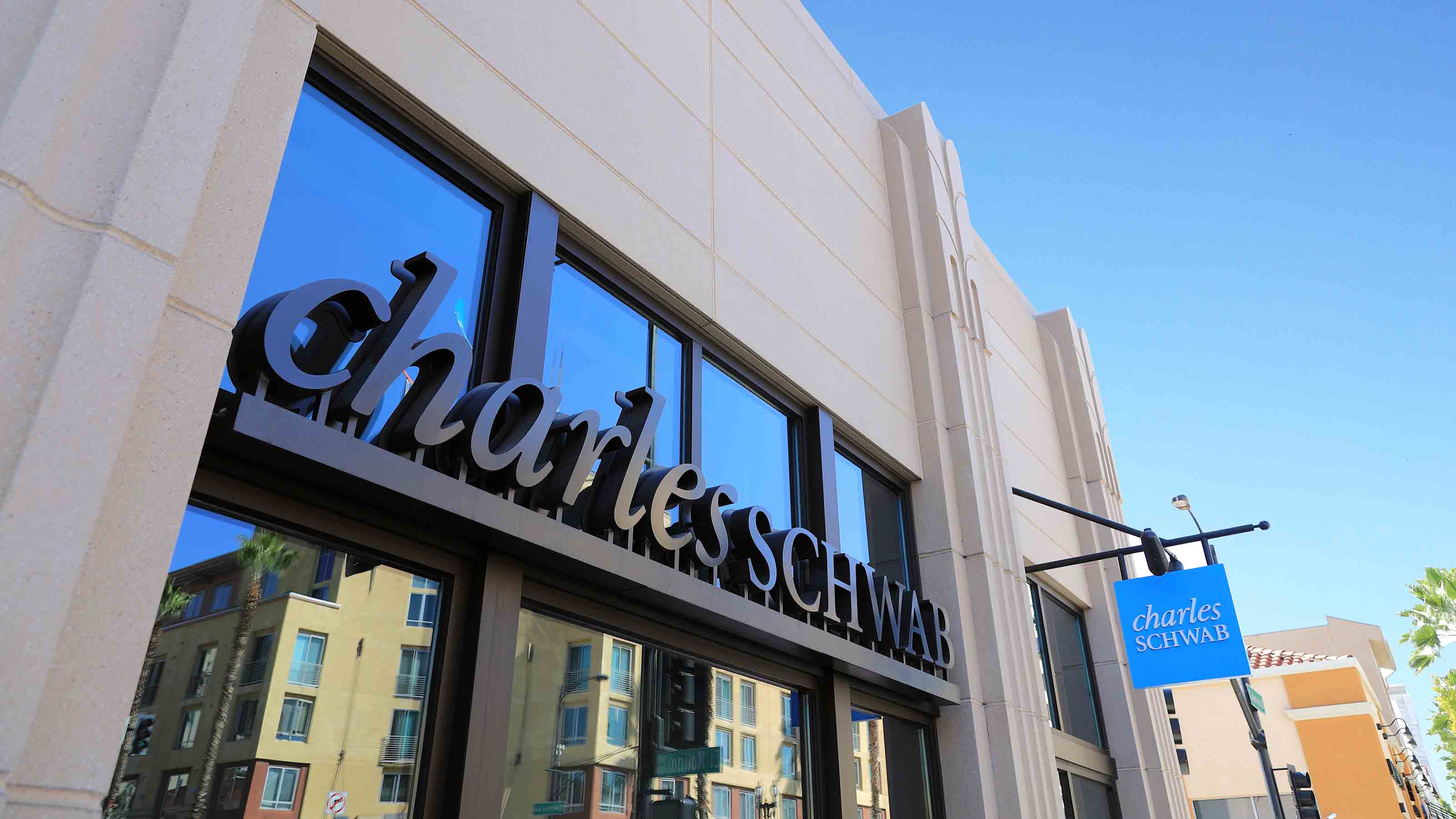 The 10 Best Schwab Funds for 2022
The 10 Best Schwab Funds for 2022ETFs Whether you're looking to build a core portfolio or position yourself for 2022, Schwab funds offer diversified exposure for a song.
-
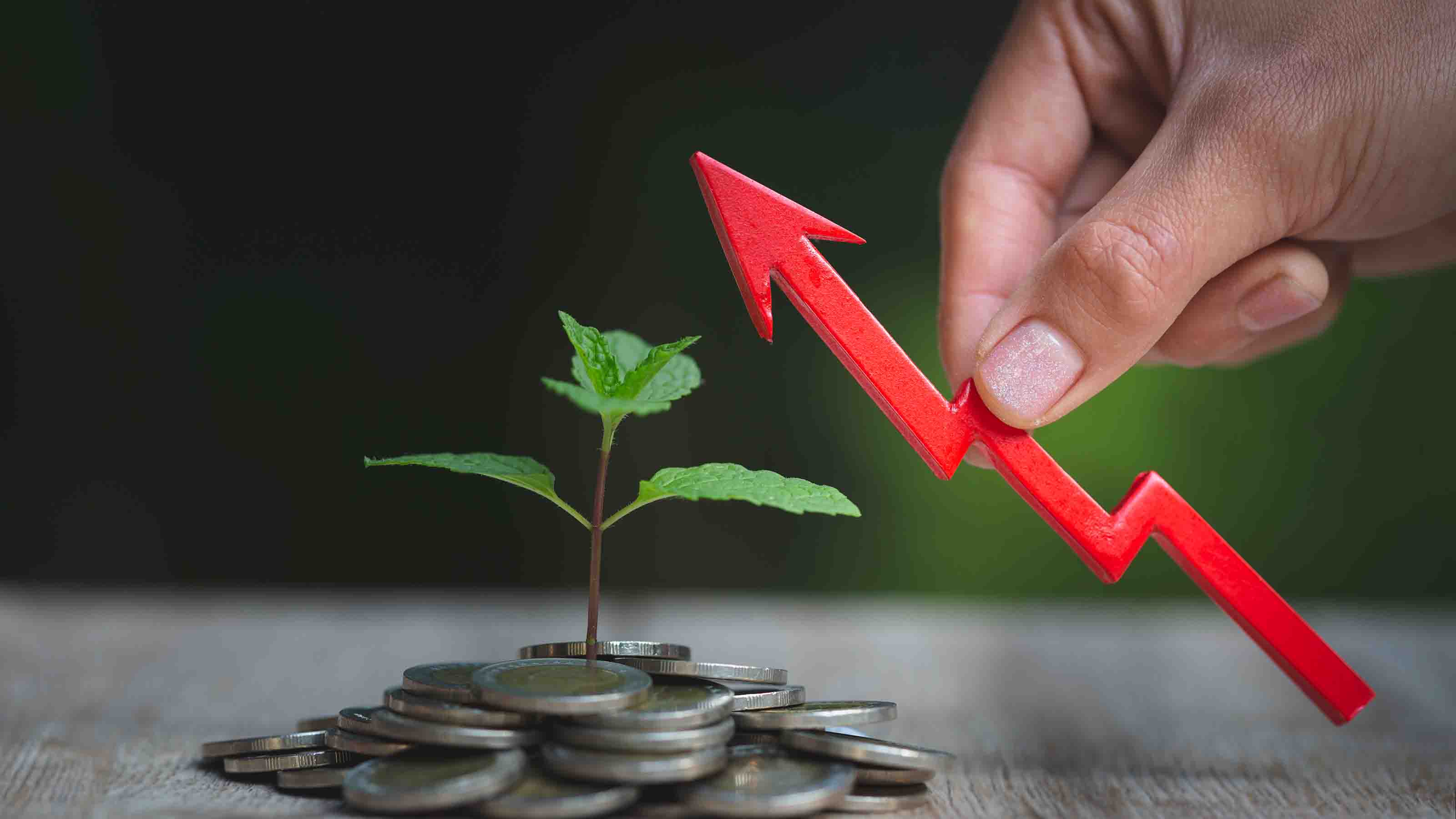 PODCAST: Investing for Income with Jeffrey Kosnett
PODCAST: Investing for Income with Jeffrey Kosnettinvesting Cold, hard cash working from home! No, this isn’t a scam — it’s an investing strategy built on bonds, REITs, preferred stocks and more.


